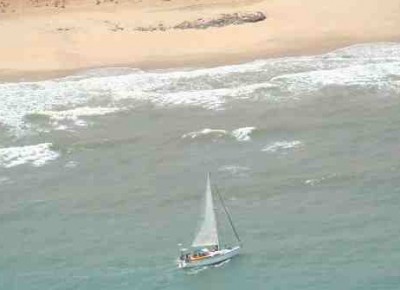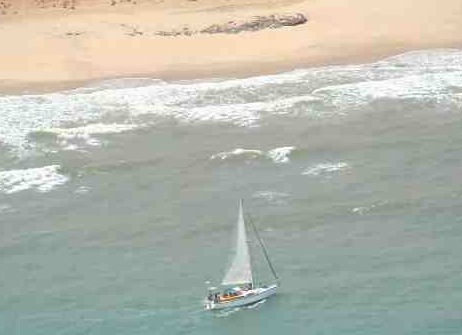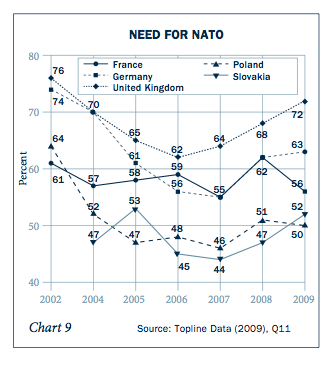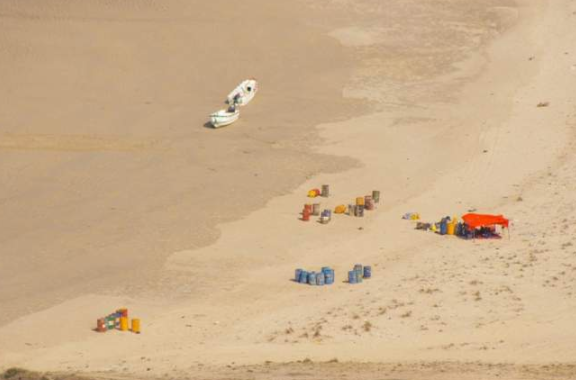The South African skipper safe and sound. Tale of a hectic weekend

The South African captain of a yacht hijacked by Somali pirates in the Indian Ocean is not dead as rumors spread over the weekend. He escaped them. It was collected aboard a military ship and is safe and sound has just confirmed a spokesperson for the European anti-piracy operation EUNAVFOR Atalanta.
His rescue, however, was eventful, according to the first account that the soldiers have just made. And the sailors of Floréal, the French frigate which is taking part in Operation Atalanta, were at the forefront.
Floréal sailors caught under pirate fire
The yacht, called "Choizil", was spotted by the frigate Floréal on Saturday 6 November. Sailors detect movements and ships “ nearby suspects ". They then tried several times to get in touch with the yacht, " in particular by performing a helicopter flight ". In vain. The decision was then made to send a boarding party aboard an inflatable boat to find out more. During the approach, the sailors wipe " gunshots coming from the yacht ". And “an SOS is received”. It is now clear to the sailors that the pleasure boat has been hacked and that its crew is in the hands of pirates. The soldiers then make the wise decision to turn back. But the Floreal remains nearby.
The next morning is November 7 (Sunday), according to the Atalanta spokesperson, " the yacht comes very close to the coast and runs aground ". The pirates leave the edge while trying to take with them, three crew members. But " the South African skipper resists and refuses to leave the boat, while the pirates take the other two crew members as hostages ". According to some accounts, he then jumped into the water. As soon as the pirates leave the yacht, the skipper is " recovered by the sailors and repatriated on the Floréal “, confirms the HQ of Atalanta, before being transferred to another military ship, Dutch this time (the Amsterdam probably), and evacuated to Mombasa. NB: the story is probably a bit complicated than that. To be continued...
(update, November 8) The skipper has been “ transferred to South African authorities “, in Mombasa, said a spokesperson for Atalanta at the end of the evening. " The fate of the other two hostages remains unknown. ". But European forces in the region follow the situation ».
Two South African hostages
(update, November 9) A helicopter attempted for several hours during the day of November 7 to locate the two hostages taken ashore by the pirates”, I was told today at EUNAVFOR Atalanta HQ. But without success. " As of yesterday, all warships have now left the area. Our mission is at sea, not on land ». As to Seychelles coastguards and the representative of EUNAVFOR in this archipelago, they formally denied that the yacht had been caught in the waters of the archipelago. " I'iincident took place in Kenyan waters “says a press release (1), calling for more attention to certain information from “pirates”. And indeed, we begin to know more about the journey of the yacht and its occupants. According to the South African press, the two people in the hands of the kidnappers are a couple, Bruno Pelizzari and Deborah, living in Bluff, near Durban, before leaving to sail to Madagascar a year ago. The couple thus left Dar es Salaam (in Tanzania) on October 21 with another yachtsman, named Peter, to convey a ship to Richard Bays (South Africa). It was off the Kenyan coast (NB: which is not really the way to go to South Africa) that they were attacked by pirates who brought them back to Baraawe in southern Somalia, where they were spotted by naval forces.
(1) The Seychelles Coast Guard and the EU NAVFOR Atalanta representative in Seychelles have confirmed that the yacht was not taken hostage in Seychelles waters, as reported by Agence France Presse, which quotes a pirate in the Somali port of Harardere. The incident took place in Kenyan waters (...) The pirates are most probably using the word “Seychelles” to grab media attention, and therefore journalists need to be cautious of the reports they obtain on the internet, particularly when pirates are quoted as sources.


